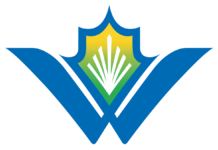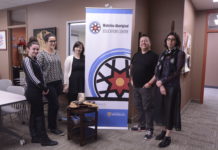Important dates
Campaign period: Jan. 30 – Feb. 15
Imprint officer debate: Feb. 2
Candidate social: Feb. 6
Voting period: Feb. 13 – 15
Results: Feb. 17
The nomination period for the 2023 Waterloo Undergraduate Student Association (WUSA) general elections ended Jan. 25, with Rory Norris emerging as the only presidential candidate and Katie Traynor as the only vice-presidential candidate. In contrast to the officer races, the director race is packed with 22 candidates running for 11 seats.
Four current directors — Rania Datoo, Daud Khan, Jeff Zhu, and Jay Lan — are running for re-election. WUSA president Stephanie Ye-Mowe is also running to be a director next year.
In total, the 22 director candidates include seven from the faculty of math; four each from arts, and environment; three from engineering; and two each from science, and health.
The directors will be elected using a version of the single transferable voting (STV) method which allows for a faculty guarantee, ensuring that the leading candidate from each faculty will be elected to the board, even if they are not among the top 11 candidates overall.
At the time of publication, seven director candidates are yet to confirm their candidacy to WUSA — a requirement to campaign and be included on the final ballot.
Due to lack of competition in both the officer races, Norris and Traynor will also face a binary approval vote to be elected to office, according to WUSA’s elections and referenda procedures (ERP). If either or both races end with the candidates not being approved, there will likely be a by-election to fill those roles.
When asked about the uncompetitive officer races, Ye-Mowe said, “Obviously it’s unfortunate. I will however say that from my knowledge of other student unions in Ontario and in Canada more broadly, and also just if you look at some of our previous years, this isn’t the first time it’s happened. We’ve had a couple of uncontested races before, so this doesn’t necessarily ring alarm bells per se. I think it’s just a chronic issue that’s being faced by every student association across Canada.”
However Ye-Mowe did acknowledge the need to figure out why students aren’t running.
“Obviously that doesn’t mean that we shouldn’t look into those roles, but at the end of the day, I think if we really want to figure out why students aren’t running, we need to engage with students and ask them.”
The election for undergraduate representatives to the UW senate is also running concurrently with the WUSA general election. There are currently four two-year senate positions open to undergraduates: engineering, math, health, and at-large. There is also a one-year at-large undergraduate representative position.
There was only one candidate each for the math, engineering, and two-year at-large undergraduate senator positions: Catherine Dong, Asher Scaini, and Rida Sayed respectively. In accordance with the ERP, Dong, Scaini, and Sayed will be acclaimed to the senate without a vote once they confirm their candidacy to WUSA — a requirement Dong and Scaini are yet to fulfill.
There were no candidates for the remaining senate seats — the health and one-year at-large undergraduate senator. A by-election will fill those vacancies, but the date has yet to be announced.
The campaign period for this election cycle began on Jan. 30 and will continue until the end of the voting period, Feb. 13 to 15. During the voting period, WUSA members, i.e. all UW undergraduate students, can cast their votes at vote.wusa.ca. The election results are expected to be announced on Feb. 17.





























